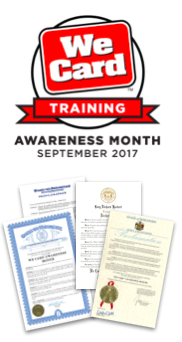Click here to see what's required in your state.
Alaska keeps its warning against tobacco sales to minors simple, requiring retailers to post these words where customers can easily see them: "The Sale of Tobacco Products to Persons Under Age 19 is Illegal."
Delaware requires bold red and black graphics. "Under 18? Don't Even Try to Buy."
And in Oklahoma, the state-required sign comes in orange. "It's The Law. We Do Not Sell Tobacco Products to Persons Under 18 Years of Age."
With so many different signage requirements that vary from state to state, it's no wonder retailers are confused.
Kathy Sharp, the assistant to the attorney for the Oklahoma ABLE Commission, said that state agents try to help retailers comply with the law by providing signs, one for each store register, free of charge.
"If Wal-Mart calls, we'll put 25 in an envelope and we'll mail them out," Sharp said. "You just need to know to call me."
And her phone number: 1-866-894-3517 ext. 4.
Altogether 39 states require that retailers post signs warning against the sale of tobacco products to minors. The state-required signs should not be confused with responsible retailing signs such as the yellow and red signs provided by the We Card program. These signs do not replace state-required signs.
Each of the 39 states has its own requirements, often down to the size of the letters and where the sign needs to hang.
Some states warn the customers. "And minors, you could lose your driver's license," the Texas sign says.
Others have a pointed message for sales associates. "You could be fined up to $700 for selling tobacco to minors," Oregon warns.
Graphics, penalties and other requirements vary from state to state.
Lyle Beckwith, senior vice president at the National Association of Convenience Stores, said that the trade group has pushed for a national standard for store signs, especially for chains that operate in many states.
"Many times, it seems as if the states are different just to be different," he said.
Depending on the state, retailers can get the required sign from the agency that enforces tobacco regulations. Many trade associations also provide the required signs to their members.
Still, many retailers remain confused by the rules.
Carol Laureys owns two convenience stores in northern Indiana and never knew that the state changed the required sign a year ago to include a warning for pregnant women, which reads: "Smoking by pregnant women may result in fetal injury, premature birth and low birth weight."
The last time the Indiana State Excise Police ran a compliance check at one of her stores, she checked the ID and declined the sale, passing without a hitch. But the agent wrote her a $50 ticket for not having the state-required sign at the cash register.
"They don't seem to let you know when the laws are changing," Laureys said.
Grant Monahan, the president of the Indiana Retail Council, said that his group lets its members know of new state requirements. The council also provides the sign to its members for free and to any other tobacco retailer for $1.25.
"I can see if you are an independent and you're not a member of our organization or the petroleum marketers you're probably not going to know about this," Monahan said. One of We Card's responsible retailing best practices is to join a state association because these groups have good and timely information to share with retailers.
Doug Reed, We Card's Director of Training and Instructional Design, said that retailers and sales associates often ask him where to get the signs that meet state requirements. He refers them to their state enforcement agency. (For an idea of the sign required in your state, click here.)
Reed said that he prefers signs with a pointed message for the customer.
"Any time you can reduce the burden on the cashier, you increase the chances of good things happening," Reed said. "Signs that deliver a clear message to the customer are key elements of a retailer's responsible retailing practices."





